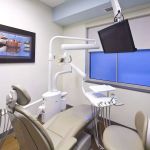
- Why Nutrition Matters for Oral Health
- Key Nutrients and Foods to Support Oral Health
- Foods to Avoid to Prevent Cavities
- Real-Life Examples and Expert Tips
- Finding the Right Products for Oral Care
1. Why Nutrition Matters for Oral Health
Oral health is often thought to depend mainly on brushing and flossing, but the truth is that your diet plays a fundamental role in maintaining healthy teeth and preventing cavities. The foods and drinks you consume can either protect your teeth or contribute to tooth decay and gum disease. When we talk about the best diet to improve oral health and prevent cavities, it’s essential to understand how nutrition affects the mouth’s environment, saliva production, and the strength of your enamel.
Saliva acts as a natural cleanser, neutralizing acids produced by bacteria that cause tooth decay. A diet rich in vitamins and minerals supports saliva production and enamel remineralization. On the other hand, frequent consumption of sugary or acidic foods feeds harmful bacteria, increasing the risk of cavities. Thus, selecting the right nutrients and avoiding damaging foods can make a significant difference in your oral hygiene.
1.1 The Connection Between Diet and Oral Microbiome
The oral microbiome consists of billions of bacteria living in your mouth. A balanced diet fosters a healthy oral microbiome that combats harmful pathogens, while a poor diet disrupts this balance, leading to plaque buildup and cavities. This biological perspective highlights why adopting a nutrient-dense diet is one of the most effective ways to protect your teeth naturally.
2. Key Nutrients and Foods to Support Oral Health
Choosing the best diet to improve oral health and prevent cavities means focusing on foods rich in calcium, phosphorus, vitamin D, and antioxidants. These nutrients contribute to enamel strength and gum health.
2.1 Calcium and Phosphorus
Calcium is crucial for rebuilding and maintaining the mineral structure of teeth. Dairy products like milk, cheese, and yogurt are excellent sources. Cheese, in particular, stimulates saliva flow and helps neutralize plaque acids. Phosphorus, found in lean meats, nuts, and eggs, works alongside calcium to strengthen enamel.
2.2 Vitamin D
Vitamin D enhances calcium absorption, making it indispensable for oral health. Sunlight exposure helps your body produce vitamin D, and foods like fatty fish and fortified cereals can supplement your intake.
2.3 Antioxidants and Vitamins C & A
Antioxidants protect gum tissues from inflammation and oxidative stress. Vitamin C, abundant in citrus fruits and leafy greens, is essential for collagen formation and gum repair. Vitamin A supports saliva production and maintains mucous membranes.
2.4 Crunchy Fruits and Vegetables
Eating crunchy fruits and vegetables like apples, carrots, and celery not only provides nutrients but also mechanically cleans teeth and stimulates saliva production, which helps wash away food particles and bacteria.
3. Foods to Avoid to Prevent Cavities
Even the best diet to improve oral health and prevent cavities requires awareness of harmful foods. Reducing sugar intake is paramount since sugar feeds cavity-causing bacteria. However, it’s not just obvious sweets; hidden sugars in processed snacks, sugary drinks, and even some breads can damage your teeth.
3.1 Sticky and Sugary Snacks
Sticky candies, dried fruits, and sugary baked goods cling to teeth longer, giving bacteria ample time to produce acids that erode enamel. Minimizing these foods or consuming them alongside water can reduce their harmful effects.
3.2 Acidic Beverages
Sodas, sports drinks, and citrus juices contain acids that weaken enamel. Frequent sipping throughout the day increases exposure, so it’s better to consume them in moderation and rinse your mouth afterward.
3.3 Starchy Foods
Refined starches like white bread and chips break down into sugars quickly, feeding bacteria similarly to sugary snacks. Opting for whole grains instead supports better oral and overall health.
4. Real-Life Examples and Expert Tips
Consider the case of Sarah, a 32-year-old who struggled with recurring cavities despite regular brushing. After consulting with a dental professional, she revamped her diet, incorporating more dairy, leafy greens, and crunchy vegetables while cutting down on sugary sodas and snacks. Within six months, her cavity incidence decreased, and her dentist noticed improved gum health. Stories like Sarah’s highlight how diet changes can make a practical difference.
Experts emphasize combining a balanced diet with good oral hygiene for the best outcomes. Regular dental check-ups, using fluoride toothpaste, and drinking plenty of water amplify the benefits of a tooth-friendly diet.
4.1 Professional Insight from Dentistry Toothtruth
At Dentistry Toothtruth, experienced dental professionals provide tailored advice and recommend products designed to complement a healthy diet, such as fluoride rinses, enamel-strengthening toothpaste, and natural oral care solutions. Their expertise ensures that patients receive comprehensive support for lasting oral health.
5. Finding the Right Products for Oral Care
While diet forms the foundation for oral health, pairing it with the right oral care products enhances protection against cavities and gum disease. For those committed to the best diet to improve oral health and prevent cavities, Dentistry Toothtruth offers a curated selection of high-quality dental care products. Whether you need specially formulated toothpaste, floss designed for sensitive gums, or professional-grade mouthwashes, their recommendations help maintain your oral hygiene routine effectively.
Integrating dietary awareness with expert-backed products creates a comprehensive defense against dental problems, making it easier to maintain a bright, healthy smile over time.







 Ann Marie Redmond0.0 (0 review)
Ann Marie Redmond0.0 (0 review) Midlothian Family Dentistry4.0 (649 review)
Midlothian Family Dentistry4.0 (649 review) Town Dental - Excelsior4.0 (52 review)
Town Dental - Excelsior4.0 (52 review) New Image Dental Ltd Dr. Brian J. Fitz5.0 (48 review)
New Image Dental Ltd Dr. Brian J. Fitz5.0 (48 review) Ray Dental Group4.0 (338 review)
Ray Dental Group4.0 (338 review) West Jordan Modern Dentistry and Orthodontics4.0 (222 review)
West Jordan Modern Dentistry and Orthodontics4.0 (222 review) The Importance of Oral Health Education During Pregnancy for a Healthy Pregnancy
The Importance of Oral Health Education During Pregnancy for a Healthy Pregnancy Best Tips for Brushing Your Teeth Properly for Healthy Gums: Essential Techniques for Oral Health
Best Tips for Brushing Your Teeth Properly for Healthy Gums: Essential Techniques for Oral Health Why Skipping Dental Checkups Can Lead to Bigger Oral Health Problems
Why Skipping Dental Checkups Can Lead to Bigger Oral Health Problems Advantages of Porcelain Dental Restorations
Advantages of Porcelain Dental Restorations How Can Diabetes Cause Tooth and Gum Problems? Preventing and Managing Oral Health Issues
How Can Diabetes Cause Tooth and Gum Problems? Preventing and Managing Oral Health Issues Healthy Habits for Promoting Good Oral Health and Hygiene: Tips for a Healthy Smile
Healthy Habits for Promoting Good Oral Health and Hygiene: Tips for a Healthy Smile